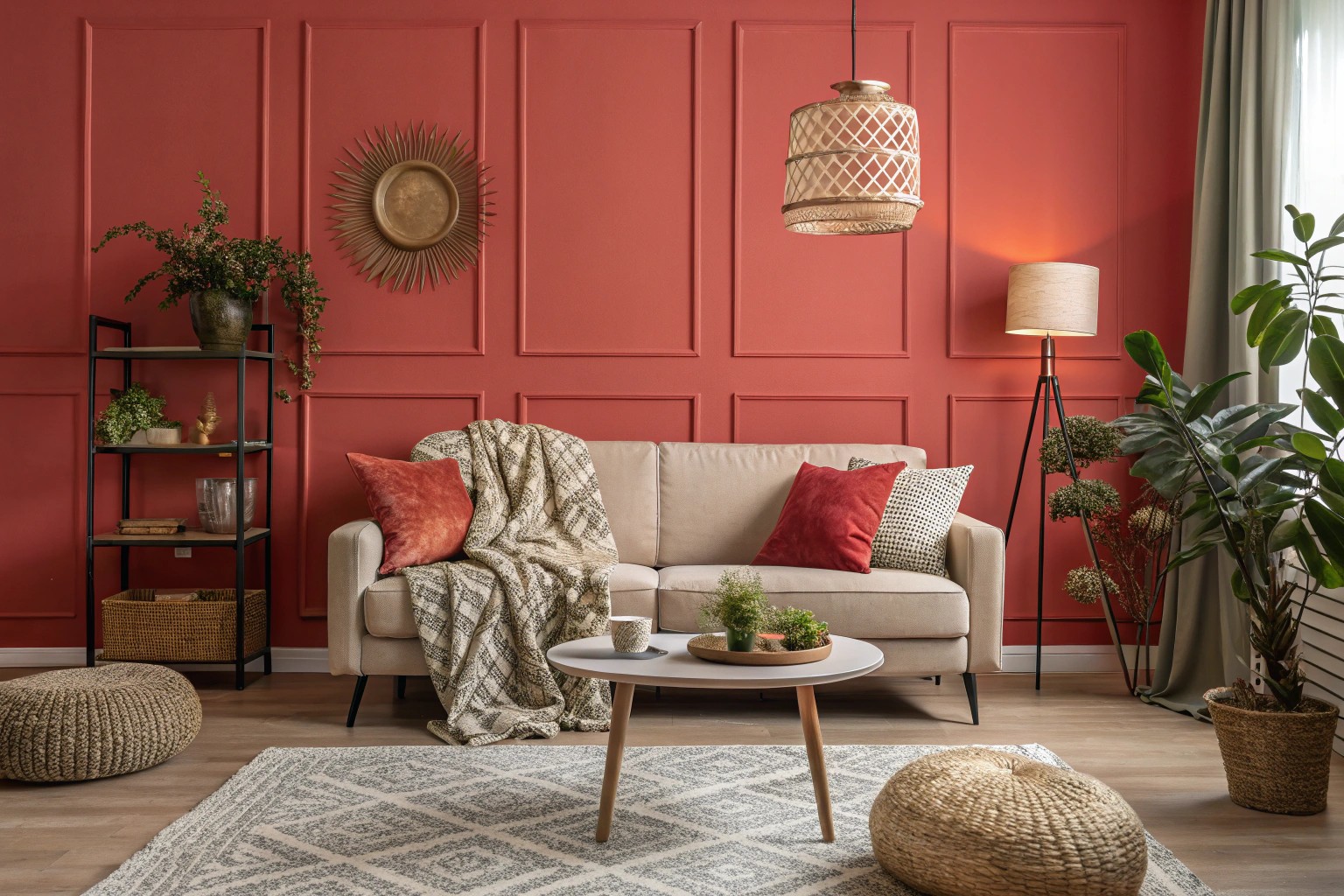Whether you’re dealing with a bland rental restriction or simply want to avoid the mess and expense of major construction, transforming an uninspiring wall doesn’t require demolition or professional contractors. With the right approach, even the most challenging wall can become a stunning focal point that enhances your entire living space.
Strategic Color Applications: Beyond Basic Paint
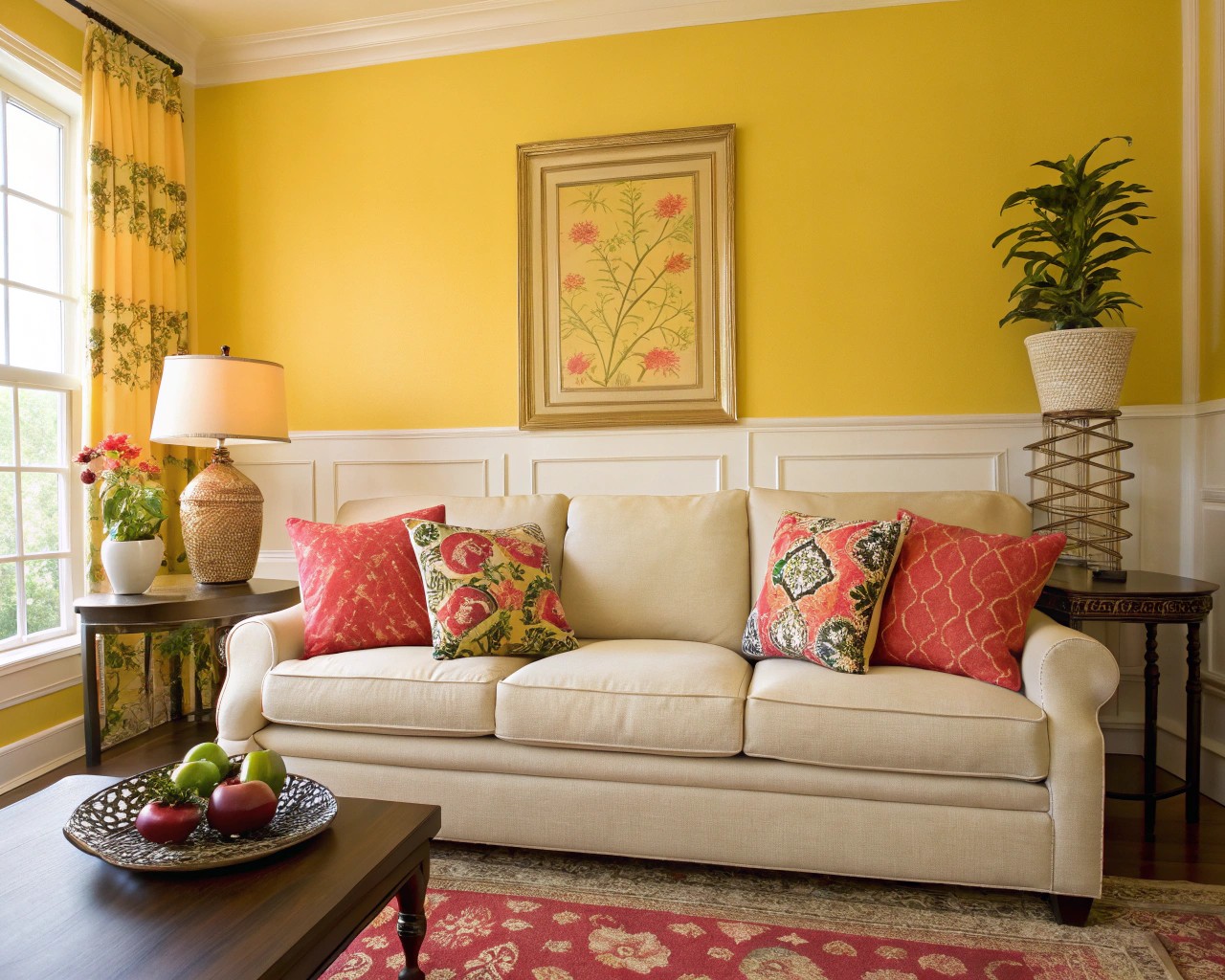
The Power of Accent Walls
Creating an accent wall remains one of the most effective transformation techniques available to homeowners. Rather than painting an entire room, focus your energy on a single statement wall. Choose a wall that naturally draws attention—typically the one behind your bed, sofa, or fireplace.
When selecting colors, consider the existing undertones in your space. Warm existing colors pair beautifully with warm accent shades, while cooler palettes benefit from complementary cool tones. I’ve found that testing paint samples in different lighting conditions throughout the day prevents costly color mistakes.
Advanced Paint Techniques for Texture
Faux lime wash effects using standard latex paint create sophisticated, Mediterranean-inspired textures without specialty materials. This technique works particularly well in bedrooms and living rooms where you want to add visual interest without overwhelming the space.
Wall drenching—painting walls, ceiling, trim, and built-ins in the same color—creates dramatic unity and can make rooms feel larger and more expensive. This approach works equally well with soft neutrals for calming effects or rich, deep hues for luxurious ambiance.
| Technique | Best Applications | Time Investment | Budget Range |
|---|---|---|---|
| Accent Wall | Any room, rental-friendly | 1 weekend | $50-150 |
| Faux Lime Wash | Bedrooms, living areas | 2-3 days | $75-200 |
| Wall Drenching | Entire rooms, cohesive design | 3-4 days | $200-500 |
Temporary and Rental-Friendly Solutions
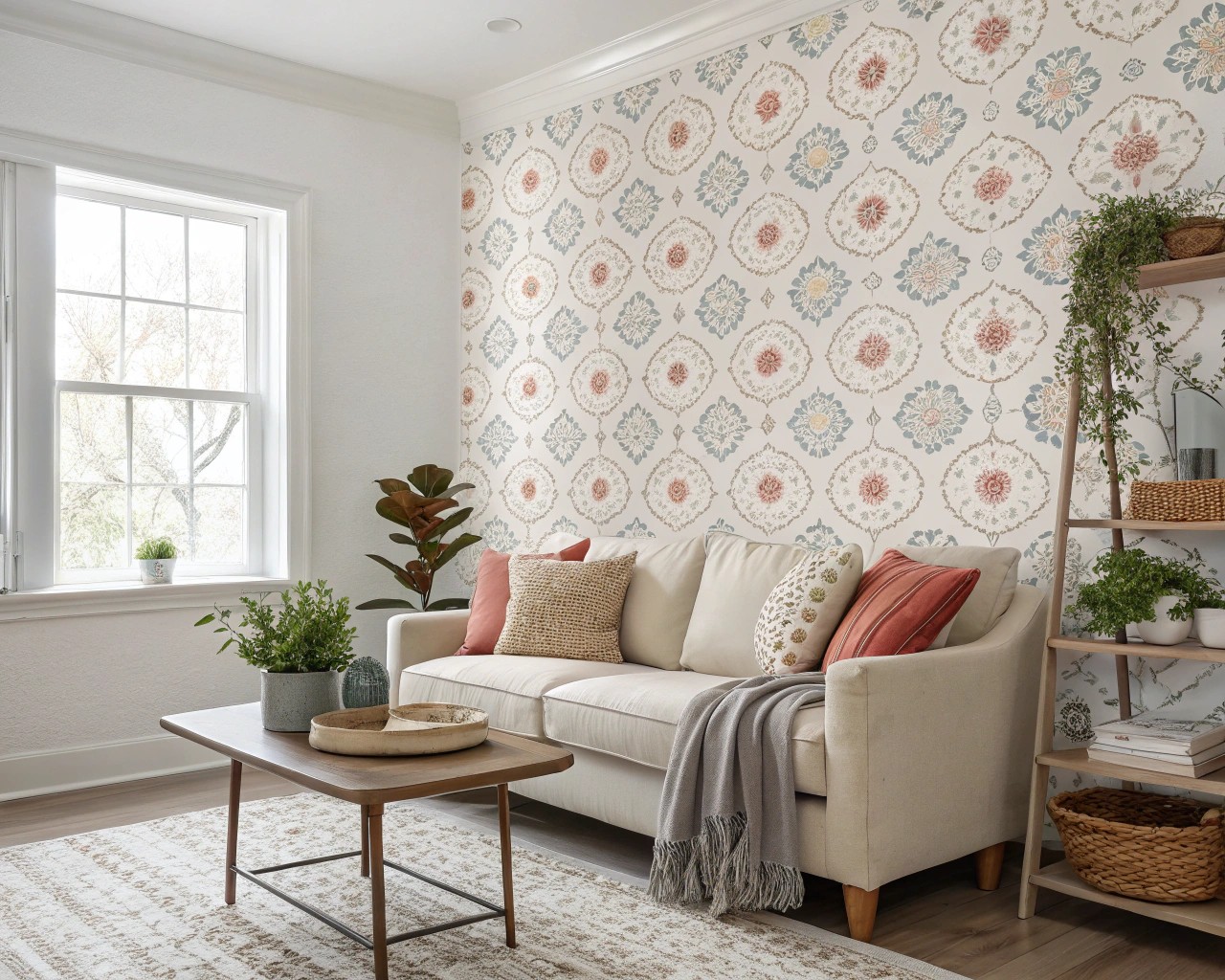
Removable Wallpaper Systems
Temporary wallpaper has revolutionized rental decorating, offering stunning visual impact without permanent commitment. These peel-and-stick options require no paste or water and remove cleanly when properly applied. Always test a small section first—while most brands remove easily, some can leave residue on certain wall surfaces.
Strategic pattern selection can alter room proportions:
- Vertical stripes create height illusion
- Horizontal patterns expand narrow spaces
- Large-scale patterns work best on single accent walls
Fabric and Textile Approaches
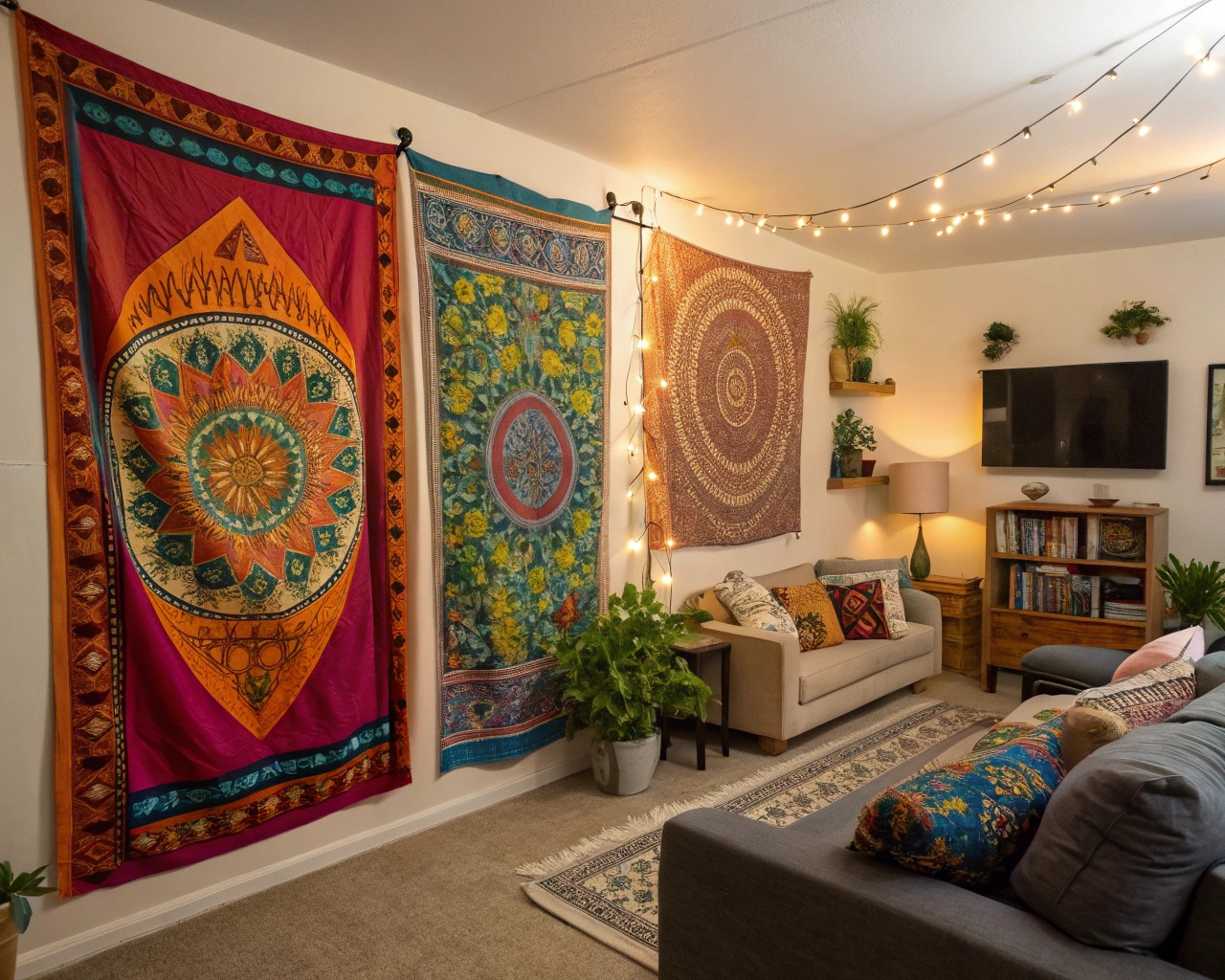
Floor-to-ceiling curtains transform plain walls into dramatic focal points without any wall attachment. Mount curtain rods slightly wider than the wall space and extend panels from ceiling to floor for maximum visual impact. This technique works particularly well in dining areas where you want to create intimate conversation spaces.
Tapestries and large fabric panels offer another temporary solution. I recommend using removable adhesive strips or tension rods to avoid wall damage while creating textile interest.
Living Walls and Vertical Gardens
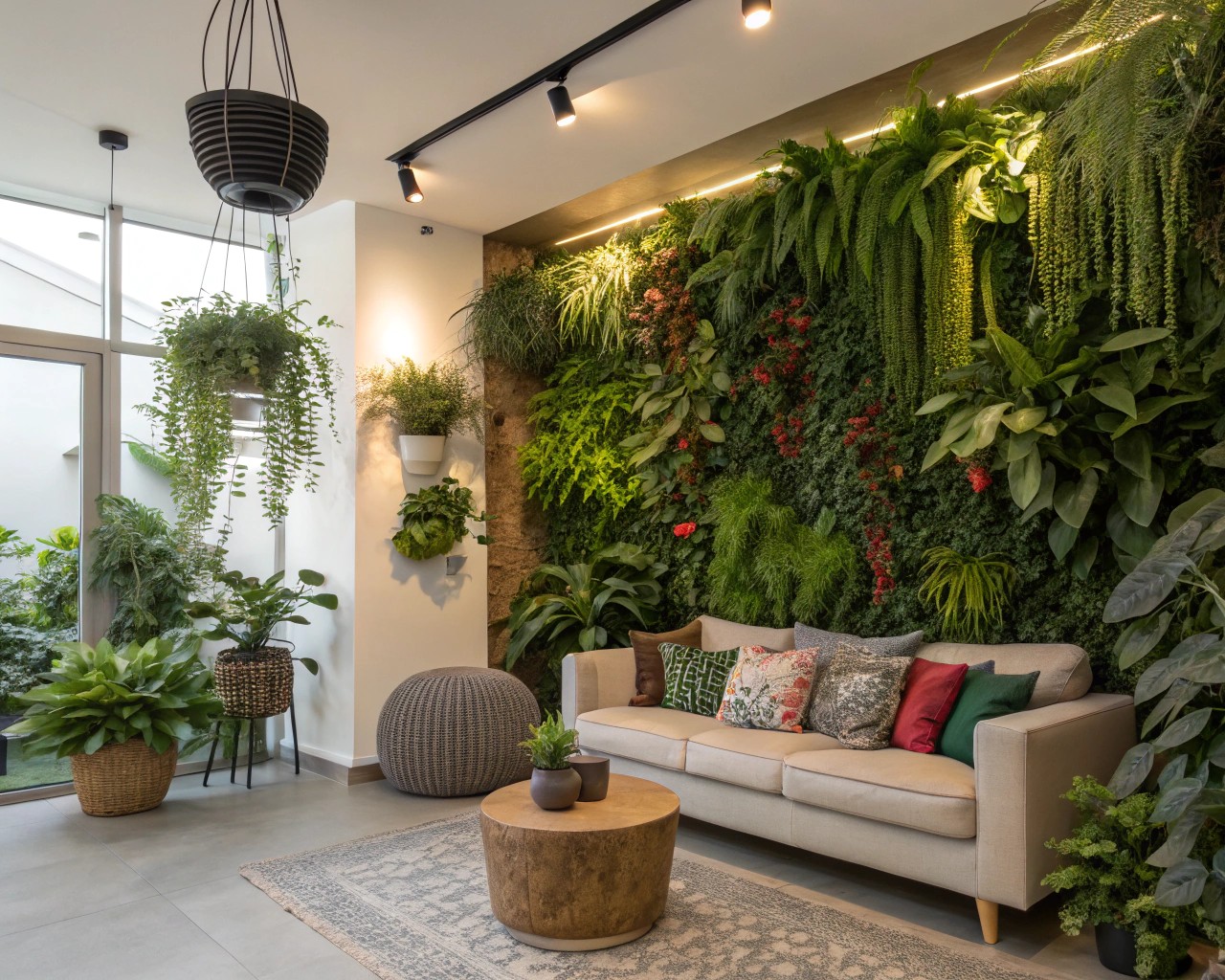
Indoor Plant Wall Systems
Living walls serve dual purposes—visual transformation and air purification. When designing indoor plant walls, prioritize low-maintenance species that thrive in your specific lighting conditions. Pothos, air plants, and other hardy varieties work well in office environments and lower-light spaces.
Wire basket systems provide flexible, budget-friendly options for creating plant walls. Use plastic liners to prevent water damage and arrange baskets at varying heights for visual interest.
Self-Watering Vertical Gardens
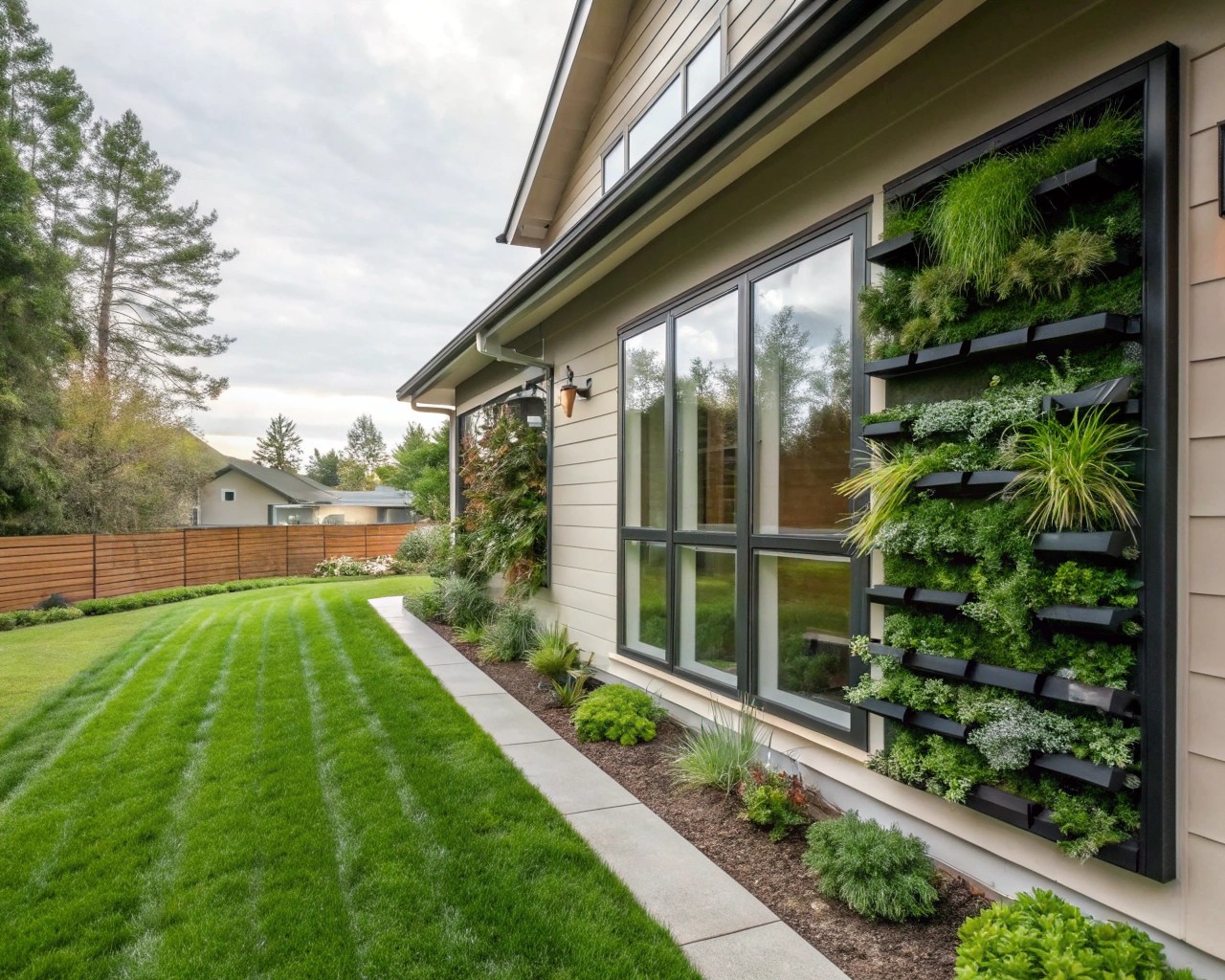
For those seeking more ambitious projects, self-watering systems eliminate the daily maintenance burden. These systems use gravity-fed irrigation where water applied at the top flows down through multiple planter levels, ensuring each plant receives adequate moisture.
Key components for DIY living walls:
- Waterproof backing material (PVC or treated plywood)
- Proper drainage system
- Plant selection appropriate for vertical growing
- Irrigation or watering plan
- Structural support adequate for saturated weight
I’ve observed that east-facing installations receive ideal morning light without afternoon heat stress, making them perfect for most plant varieties.
Outdoor Living Wall Applications
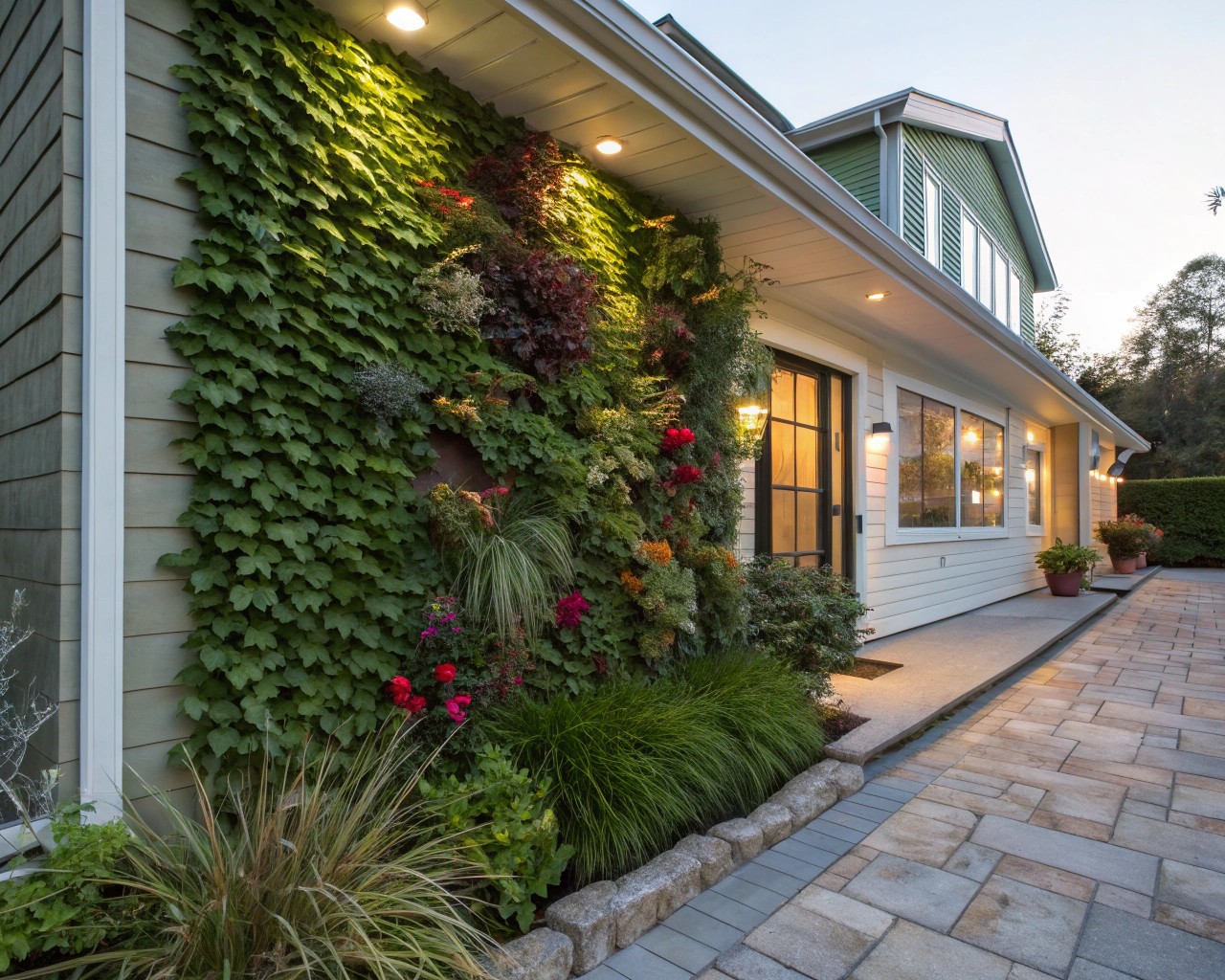
Outdoor vertical gardens offer dramatic transformation potential for patios and deck spaces. Modular systems that lean against existing structures provide flexibility without permanent installation. A typical 7×8-foot outdoor living wall can transform an entire deck area while remaining removable if needed.
Consider these outdoor plant categories:
- Climbing varieties: Clematis, climbing roses, honeysuckle
- Herb walls: Basil, thyme, rosemary for culinary convenience
- Seasonal color: Annual flowers for changeable displays
- Evergreen structure: Year-round visual interest
Creative Decorative Approaches
Gallery Walls and Art Installations
Strategic art placement can completely transform wall perception. Gallery walls work especially well when using consistent framing materials—even dollar store frames create cohesive impact when spray-painted matching colors.
For large blank spaces, consider these approaches:
- Plate and platter displays: Ironstone or decorative ceramics arranged symmetrically
- Mirror installations: Reflect light while adding perceived space
- Mixed media galleries: Combine photographs, artwork, and three-dimensional objects
Textural Elements and Dimensional Details
Wood slat installations bring Scandinavian-inspired warmth to modern spaces. Vertical slats create height emphasis while integrated shelving adds functionality. This approach works particularly well in home offices and living rooms where you need both visual interest and storage solutions.
Masking tape designs offer completely temporary geometric patterns. Use high-quality painter’s tape to create custom wall graphics that remove cleanly. This technique works especially well in children’s rooms and temporary spaces.
Implementation Planning and Execution
Assessment and Preparation
Before beginning any wall transformation, evaluate your space systematically:
- Lighting analysis: Note natural light direction and artificial lighting placement
- Traffic patterns: Consider how people move through the space
- Existing elements: Identify features that must remain or be incorporated
- Rental restrictions: Understand any limitations before planning
Project Sequencing
Start with removable solutions when testing new design directions. Temporary wallpaper, wall decals, or fabric panels allow experimentation without commitment. Once you’re confident in the direction, invest in more permanent improvements.
For living walls, begin with small installations to understand maintenance requirements before scaling up. Seasonal timing matters for outdoor projects—install living walls in spring or early fall when plants establish more readily.
Budget-Conscious Strategies
Transform walls economically by prioritizing high-impact, low-cost solutions:
Under $100 transformations:
- Accent paint wall with quality brushes and primer
- Temporary wallpaper feature wall
- Gallery wall using existing photos and thrift store frames
- Basic living wall with wire baskets and houseplants
$100-300 range:
- Professional temporary wallpaper installation
- DIY wood slat accent wall
- Complete paint room transformation
- Medium-scale indoor living wall system
Investment projects ($300+):
- Custom built-in living wall systems
- Professional mural or specialty paint techniques
- Large-scale outdoor vertical garden installations
- Combination approaches using multiple techniques
The most successful wall transformations balance immediate visual impact with long-term satisfaction. Whether you choose a quick paint refresh or embark on an elaborate living wall project, focusing on techniques that enhance your daily experience ensures lasting enjoyment of your transformed space.

